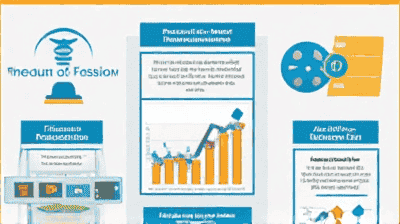How to Create a Personal Budget That Actually Works (Step-by-Step Guide)



Creating a personal budget is a foundational aspect of effective wealth management and financial planning. A well-structured budget helps individuals and families understand their financial situation, control expenditures, and achieve their financial goals. However, many people struggle with maintaining a budget that works effectively for their needs.
Budgeting is a vital aspect of financial management. It enables individuals to track their income and expenses systematically, ensuring that they live within their means and meet their financial obligations. A well-crafted budget offers numerous benefits, including the following:

Before creating a budget, it is crucial to assess your current financial situation accurately. This assessment involves gathering financial information and analyzing your income and expenses.
Start by collecting all the necessary documents that provide insight into your financial situation:
Once you have gathered your financial information, take the time to analyze your income and expenses.
Having clearly defined financial goals is critical when creating a budget. Goals provide direction and motivation, making it easier to stick to your budget. Consider the following types of goals:
Ensure that your goals are specific, measurable, achievable, relevant, and time-bound (SMART), which will make them more manageable.

Different budgeting methods suit different individuals based on their financial situations and preferences. Here are three popular budgeting methods to consider:
Traditional budgeting involves listing all sources of income and categorizing all expenses into fixed and variable categories. This method focuses on tracking and balancing your income against your expenses, aiming to allocate every dollar effectively.
Zero-based budgeting requires you to allocate every dollar of your income to specific expenses, savings, or debt payments until your income minus expenses equals zero. This method encourages critical examination of your spending and prioritization of needs over wants.
The 50/30/20 rule is a straightforward method for budgeting based on your income. According to this rule:
Choose the method that resonates best with your financial situation and goals.
Now that you have gathered your financial information and formulated your goals, it’s time to create your budget.
Begin by creating a section for your income in your budget. List all sources of income, including salaries, side jobs, and rental income. Be realistic about what you can expect to receive each month, considering any variations in income.
Next, create categories for your expenses. Common categories include:
Be sure to include both fixed and variable expenses in your budget.
Once you have established your income and expense categories, allocate funds to each category based on your current financial situation and goals.

With your budget established, the next step is to implement it effectively.
Modern technology provides a wealth of budgeting tools and apps to help you manage your finances. Some popular options include:
Choose a tool that fits your needs, and ensure you use it consistently.
Tracking your spending is crucial to staying on budget. Regularly review your transactions against your budget to identify areas where you are overspending or saving more than anticipated.
A successful budget requires ongoing monitoring and periodic adjustments to accommodate changes in your financial situation.
Set aside time each month to review your budget. Compare actual spending against your planned budget and identify any discrepancies. Regular reviews can help you stay accountable and recognize spending patterns.
Life is unpredictable, and your budget may need changes to reflect new circumstances. If you experience a sudden change in income or expenses—like a job change, medical expense, or significant purchase—update your budget accordingly. Flexibility is key to maintaining a budget that works.
Creating a budget is only the first step; sticking to it is where the challenge often lies. Here are some helpful tips to help you remain committed:
Impulse spending can derail even the best budgets. To avoid this, consider implementing strategies such as:
Automate your savings by setting up direct deposits into savings accounts or investment accounts. This strategy ensures that you prioritize savings each month, reducing the temptation to spend.
Creating a personal budget that truly works is an essential step toward effective wealth management. By understanding your financial situation, defining your goals, choosing the right budgeting method, and monitoring your progress, you can take control of your finances and achieve your financial aspirations.
Budgeting is not a one-time activity but an ongoing process that requires commitment and adaptability. By regularly reviewing and adjusting your budget, you can navigate through life’s financial challenges more effectively and work toward a secure financial future.
Remember, a budget is a tool that empowers you to make informed financial decisions, gain control over your spending, and ultimately build the wealth to support your lifestyle and goals.